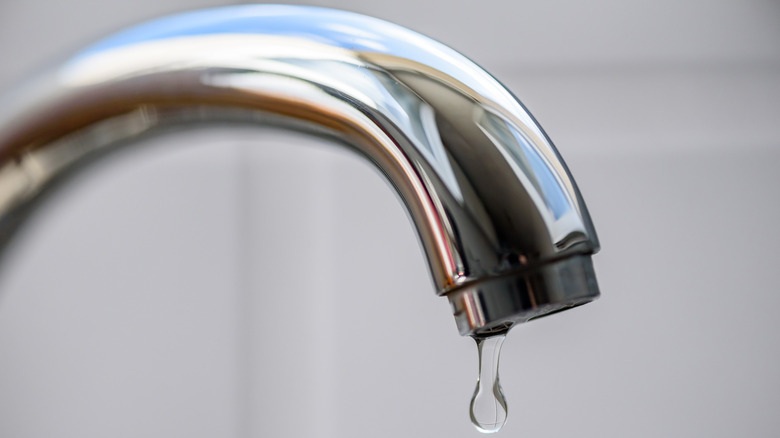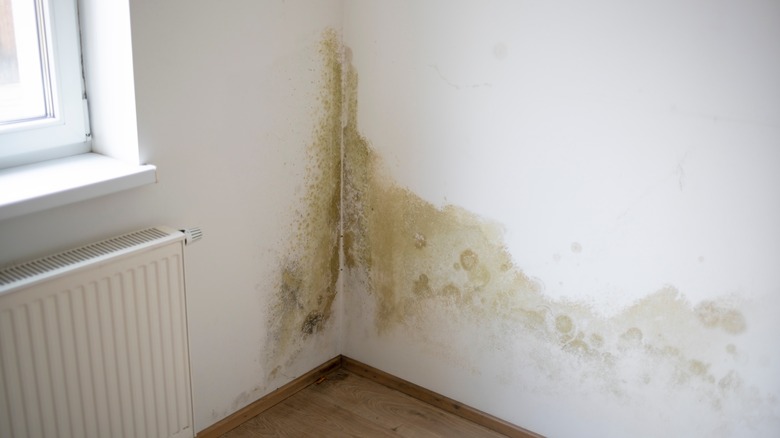Why Water Leaks In Your Home Shouldn't Be Ignored
We're all guilty of allowing procrastination to delay projects and chores, however, avoiding the completion of certain tasks can end up being a costly disaster. For instance, most of us have had to deal with a water leak or two — whether it be in the bathroom, kitchen, or laundry room. There are many reasons why this tends to happen. You may be dealing with a broken seal, clogged drains, deteriorating pipe joints, high water pressure, or just general wear and tear. Whatever the reason, though, it's advisable to deal with it sooner rather than later.
Sometimes, we may not even realize there's a problem until we notice some form of damage. Therefore, it's advised to do a routine check of things like faucets, toilets, shower heads, and garden hoses. These are areas where large quantities of water are generally wasted if not repaired in a timely manner. However, there is more to fear if this is a task you decide to ignore.
Financial costs of a water leak
Household leaks account for almost 1 trillion gallons of wasted water per year. The cost of a water leak can vary significantly. For instance, a dripping faucet can add about $20 a month to your water bill — which is a whopping $240 a year. However, if your toilet is leaking, that alone can cost you about $150 a month. Moreover, a small crack in your pipe can deliver a devastating blow of an additional $600 per month.
Now, why pay all that money for something that's typically easy to fix? Repairing a leaky faucet can be an affordable and easy repair. Typically, you'll be dealing with a damaged washer or gasket, a loose O ring, or a deteriorating valve seat. All of these issues can usually be dealt with by the homeowner. However, if you're facing something a bit more complex, a plumber may charge you around $65 to $150 for the repair.
Further damage
Although a leak may seem small and insignificant, it can cause some major damage to your home when ignored. For starters, mold growth is commonly a result of water damage. This type of fungus grows in wet and humid spaces and can be an issue for those with allergies or asthma. If left alone for too long, mold can also deteriorate the structure of your home. In addition to unsightly mold growth, leaks can also become a water source for different pests, such as mice, ants, and termites.
If you're dealing with leaks underground, dirt and other types of bacteria could potentially infiltrate your system and contaminate your water supply, which can become a dangerous situation if these substances end up in your drinking water. To that end, if one or more of these issues become a problem in your residence, you could end up spending thousands of dollars on repairs instead of a few hundred when they are dealt with in a timely manner.


